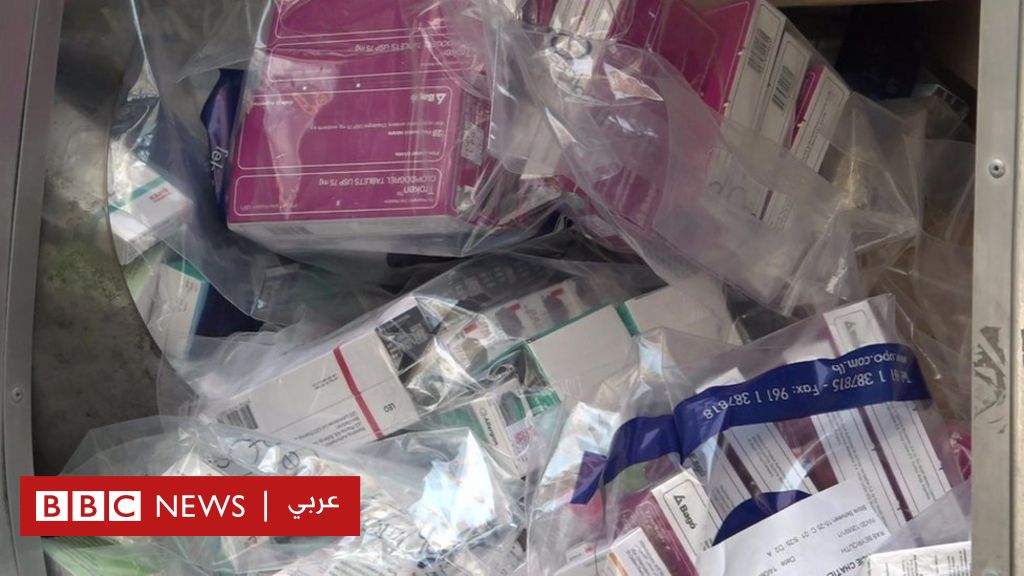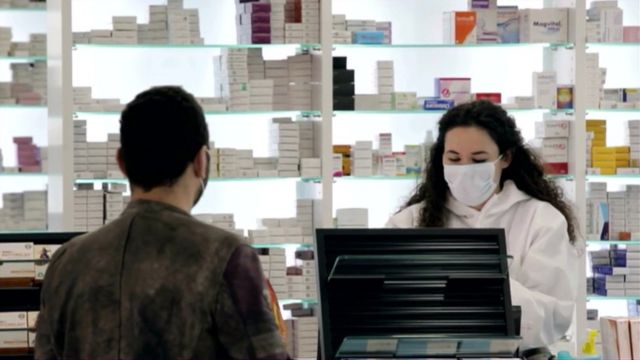- Lama Khair
- BBC Arabic – London
October 17, 2022
Have you ever thought about taking an expired medicine because you can’t stand the pain, waiting for a doctor’s appointment to prescribe a new medicine, or can’t afford to buy the new one?
Perhaps waiting for the doctor is not the main reason for taking these medicines in several Arab countries, but the economic conditions in countries like Yemen, Syria and Lebanon make consulting a doctor or buying a box of a new medicine a question beyond the power of many.
Herein lies the danger that people may resort to medications available at home without paying attention to history, or succumb to suffering without treatment.
Yemeni pharmacist Hani al-Idrisi says there are many patients attending his pharmacy in Sana’a who return drugs after seeing that they still have a shelf life of two months or so, refusing to take them on the grounds which may not be effective. He added: “Most health care organizations say the drug does not expire in the last six months, as some believe, but it often gradually loses its focus. However, this also doesn’t apply to all drugs. Rather, it varies from one drug to another. drug to another according to the cases of its use. “
Expiration date
The print expiration date dates back to 1979, when the US Food and Drug Administration formally imposed a law requiring drug companies to restrict it to all prescription and non-prescription drugs. This means ensuring the safety of the drug and its full effectiveness from its manufacture until its expiration date, and the expiration period of most drugs varies between 12 and 60 months.
Taking into consideration the conditions related to the medicine box that has been open for a long time and others such as cough medicines or eye drops that can cause harm, or the need to store the medicine in the refrigerator such as insulin for diabetic patients, to example, so that it does not lose its therapeutic properties and as a result lead to dangerous results.
On its website, the World Health Organization distinguishes between the phrase “expiration date” and “use before” a specific date, according to the site, if the drug’s expiration date is October, the drug should not be consumed. after October 31st. If the phrase used is “use before October”, it should not be consumed after September 30th.
Get rid of old medicines
Many countries around the world have procedures to return expired or unused medicines to pharmacies for appropriate and safe disposal for the environment and animals.
The costs of unused medicines in Britain, for example, exceed the equivalent of US $ 350 million per year, according to the UK health system.
According to a study by King Abdulaziz Medical City in Saudi Arabia, in the month in which the study was conducted alone, the cost of returning about two thousand unused medicines to pharmacies was over 26 thousand US dollars.
Dangerous or useless?
But does the drug become dangerous after the expiration date or does it simply lose its usefulness?
The question may seem simple, but the answer is not that easy: there are pills, capsules, liquid medicines, drops and needles and the difference in drug form must be a factor in arriving at the proper answer.
Egyptian pharmacist Reham Salam says: “The types of medicines vary when their effect ends, some can turn into a toxic substance or others cause damage that can affect the skin, cause a chronic allergy or even kill the patient, so this problem. it should never be tolerated. “.
Pharmacovigilance notifications?
Interestingly, a number of Arab countries provide “Pharmacovigilance Notification” service on websites such as Egypt, the Emirates, Qatar and the Maghreb, some of which allow healthcare professionals to file reports on any side effects from pharmaceuticals or medication errors, including diet drug interactions as well as post-vaccine negative symptoms. Some of them have to report expired drugs or their malls. Others provide information, analysis or expertise in pharmacology and toxicology from the right sources.
This is considered a lot of effort, but some believe that efforts to educate people not to consume expired drugs are very limited, if not non-existent. The task of people’s medical safety rests with them individually and depends on the extent of their culture and awareness of the harms and dangers.




